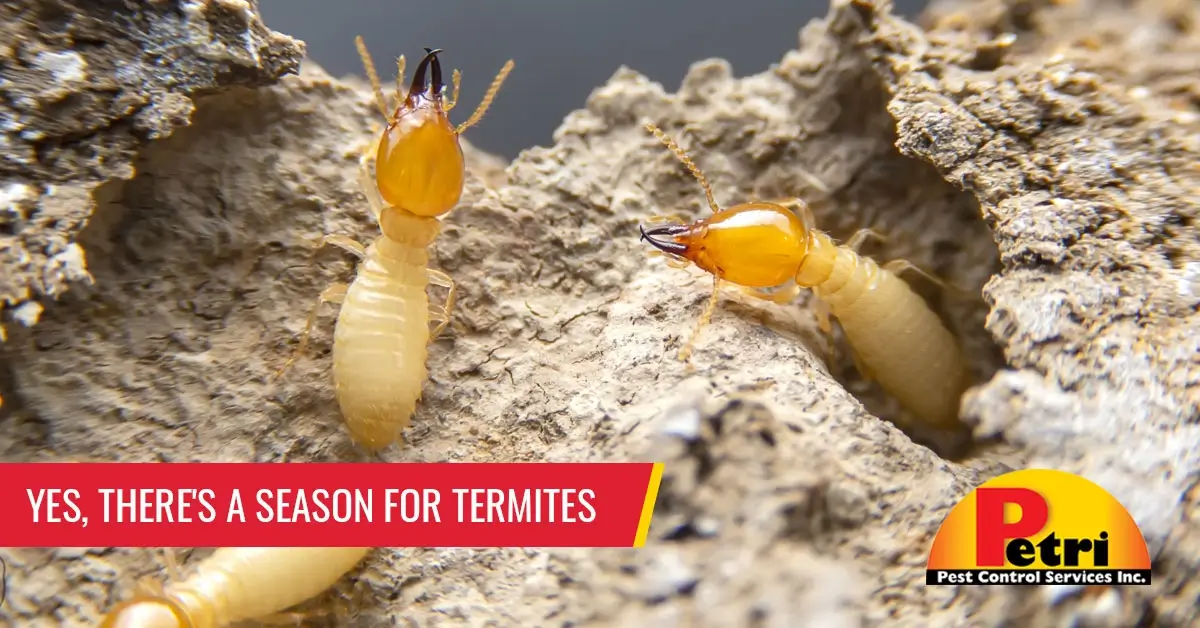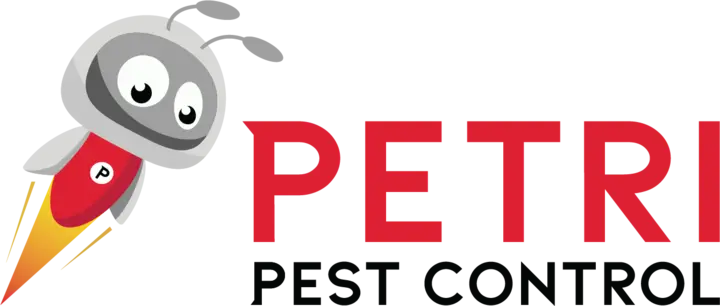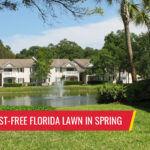
Termite season arrives in South Florida in the spring and can last all throughout the summer months. And if your home is vulnerable to an infestation, the peaks of termite season might be a particularly rough time for you. These little homewreckers can wreak havoc and once they establish themselves, they can be extremely difficult to evict. Being able to spot the tell-tale signs your home has an active termite infestation, and knowing how to eliminate the pests in your home is vitally important to regaining control. So, this termite season, be on the lookout for signs that termites have decided to make your home their new nesting grounds and learn the best methods to protect and rid yourself of these little critters.
Signs of Termite Infestations
Drywood termites can go unnoticed for a while, often carving out the wood in attics and the eaves of homes. Signs that you might have a drywood termite infestation include:
- Discarded wings on windowsills
- Wood surfaces that are blistered or warped and look water damaged
- Wood that sounds hollow when tapped on and that you can easily push the tip of a screwdriver through
- Piles of “frass,” barrel-shaped pellets that drywood termites deposit from kick-out holes in the wood they infest
Invasive Asian and Formosan subterranean termites start colonies in large, live trees and eventually move to structures. Living in the ground near your home, subterranean termites build mud tubes consisting of earth and termite excrement that connect their food source, the wood in your home, to their massive nests in the soil underneath your yard. Worker termites transport cellulose from your home to the million or so hungry mouths that comprise their colonies. More aggressive than native subterranean termites, Asian and Formosan termites will eat anything with wood in it, including particle board. Signs of subterranean Asian and Formosan termite activity include:
- Earthen tubes running up trees or the side of your home or around windows and baseboards
- Discarded wings inside your home near window sills
- Wood that is paper thin and sounds hollow when tapped
- Wood that looks blistered
- Bathroom and kitchen fixtures that seem to be detaching from walls
- Sagging subflooring
Termites Like Warm Conditions
While not all termites are affected by the subtle seasonal changes in South Florida, termites are cold-blooded animals and prefer warmer conditions in the 70s to fully function. However, drywood termites can happily infest your nice, warm home in the cooler months, not needing outside water sources to survive.
Swarming Termites
Termites swarm to start new colonies. This happens due to the maturity of colonies, usually around three years, or due to existing termite colonies growing too large to manage. Reproductive termites, known as alates, bear two sets of wings and fly out of the colony at dusk to find mates and form new colonies. Drawn to light, your home is appealing to these alates.
- Subterranean Termites
- Asian subterranean termites typically swarm from March to May, at dusk, after rainfall but have been known to swarm as early as February, from Key West to West Palm Beach. Asian subterranean termites infest healthy trees and can forage underground from up to a hundred feet away from their central nest, eventually reaching structures.
- Formosan subterranean termites swarm from April through June every year, usually at dusk after rainfall. Formerly restricted to South Florida, due to climate change, Formosan subterranean termites are now established throughout Florida and other Southeastern states, as well.
- West Indian Drywood termite swarms are active in April. Establishing small nests, these pests live inside the structures they infest, such as structural wood or furniture.
Preventing Termites
In South Florida, preventing termites from infesting your home is the best step you can take towards protecting your home and your loved ones. Homeowners like yourself can take steps to deter termites from finding their homes attractive by:
- Eliminating or repairing all leaks and water issues in your home, especially around your foundation
- Eliminating ground to wood contact
- Moving wood piles at least ten feet away from your home
- Removing dead plant matter and stumps from your property
- Maintaining your gutters
- Make sure your downspouts and sump pumps drain away from your house
When to Contact a Professional Pest Control Service
Most importantly, proactive homeowners in South Florida should contact professional pest control companies, such as locally owned and operated Petri Pest Control Services to set up termite protection programs in order to prevent termites from attacking and damaging their homes in the first.
At Petri Pest Control Services, we use the Sentricon® Colony Elimination System with Always Active™ technology to effectively eliminate subterranean termites from your property permanently. Petri Pest Control Service’s termite experts are certified Sentricon Specialists, which means we are licensed and authorized to install the Sentricon system around homes and businesses throughout South Florida. Strategically placed baiting stations in the ground around your home or business, Sentricon’s Always Active technology contains Recruit HD termite bait. Ingesting the active ingredient, termites are prevented from molting. When termites can’t molt, they can’t grow into their next life cycle phase and will die off. With no workers to bring food, the queen also dies, ending the colony.
For drywood termite infestations, we at Petri Pest Control Services offer two methods for treating the issue – tent fumigation and a no tent solution. During a thorough inspection of your property, our trained team will make notes and where possible, take photos. Based on their findings, they will make a recommendation. In many cases, the no tent solution is offered when it is thought to be an effective solution for the infestation – this will depend on the extent and accessibility of the termite infestation. If tenting is recommended, this will require you to leave your home for a few days to safely treat the infestation and protect the structural integrity of your home or business.
Petri Pest Control Services, located in Pompano Beach, provides affordable, effective solutions to pest control and termite concerns for homes and businesses in Broward and Palm Beach Counties. With over 65 years of experience, as a leader in the pest control industry in South Florida, Petri Pest Control Services is your neighborhood pest control company. Contact us for a free termite inspection and to learn more about the termite control options that would work best for your property.
Yes, There’s A Season For Termites in South Florida
Serving Broward County and Palm Beach County


